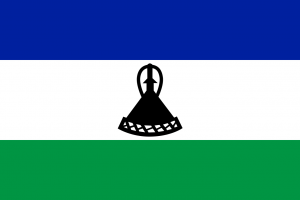Language/Southern-sotho/Grammar/Adjectives
Hi Southern Sotho learners! 😊
In this lesson, we will be exploring adjectives, a very important part of the Southern Sotho language. Adjectives are descriptive words that describe the qualities or attributes of nouns.
After mastering this lesson, these related pages might interest you: Conditional Mood, Future Tense, Pronouns & How to Use Have.
What are Adjectives in Southern Sotho?[edit | edit source]
Adjectives in Southern Sotho end with the suffix "-ng" and are placed after the noun they are describing. The adjective agrees with the noun in class and number. Unlike English, adjectives in Southern Sotho do not change to match the tense or mood of the sentence.
Here is an example to illustrate:
| Southern Sotho | Pronunciation | English |
|---|---|---|
| baetti ba matsoho | baʔɛtʼi ba mat͡soho | green cars |
In the example above, "baetti" means cars and "matsoho" means green. Notice how "matsoho" ends with "-ng" to indicate that it is an adjective.
Another example:
| Southern Sotho | Pronunciation | English |
|---|---|---|
| masole a melao | maʃolɛ a mɛlaʔɔ | sweet boys |
In the example above, "masole" means boys and "melao" means sweet. Once again, notice how "melao" ends with "-ng".
You can also use more than one adjective to describe a noun:
| Southern Sotho | Pronunciation | English |
|---|---|---|
| ntwana e monate le e bohloko | ntwana ɛ mɔnatɛ lɛ ɛ bɔɦlɔkɔ | beautiful and tall child |
In the example above, "ntwana" means child, "monate" means beautiful and "bohloko" means tall. Notice how both adjectives end with "-ng" to indicate they are adjectives.
Comparison of Adjectives[edit | edit source]
In Southern Sotho, adjectives can be compared using different phrases. The most common phrases are "ka" and "ho feletswe". "Ka" means "than" in English and "ho feletswe" means "more" in English.
Here is an example:
| Southern Sotho | Pronunciation | English |
|---|---|---|
| ntwana e monate ke eng? | ntwana ɛ mɔnatɛ kɛ ɛŋ? | What is a beautiful child like? |
| ntwana e monate ka nnete ka ea tsoa? | ntwana ɛ mɔnatɛ ka nːɛtʼɛ ka ɛa t͡soa | Is a beautiful child more honest than other children? |
In the example above, "ka" is used to compare the beauty of one child to other children.
Practice Dialogue[edit | edit source]
Let's practice what we learned in a dialogue:
- Person 1: Ke tla etsa se nang le nako ea leholimong. (I will do something fun in Maseru.)
- Person 2: Ke ya kholo ho bona mehlake (I am excited to see the mountains.)
- Person 1: Batsoali ba Botsabela ba nang le thepa e monate e potlakileng. (The Botsabela ladies have a very beautiful traditional dress.)
- Person 2: Ke leboha ho ile ka bona. (I was happy to see it.)
- Person 1: Ke leboha haholo ka seo ba fetang ka eo. (I am very grateful for what they have done.)
- Person 2: Nna ke bata ba ba monate ba bolofo ba ho qoba liphallelo leo. (I want beautiful black shoes to wear to the party.)
Conclusion[edit | edit source]
In conclusion, adjectives are really important in Southern Sotho because they allow us to describe nouns in a more specific way. Using adjectives makes your conversation more interesting and colorful. To improve your Southern Sotho Grammar, you can also use the Polyglot Club website. Find native speakers and ask them any questions! Don't forget to check out our Grammar page for more language learning.
➡ If you have any questions, please ask them in the comments section below.
➡ Feel free to edit this wiki page if you think it can be improved. 😎
Impressive work on finishing this lesson! Explore these additional pages to enhance your understanding: Say Hello and Greetings in Southern Sotho, How to Use Be & Plurals.
Other Lessons[edit | edit source]

